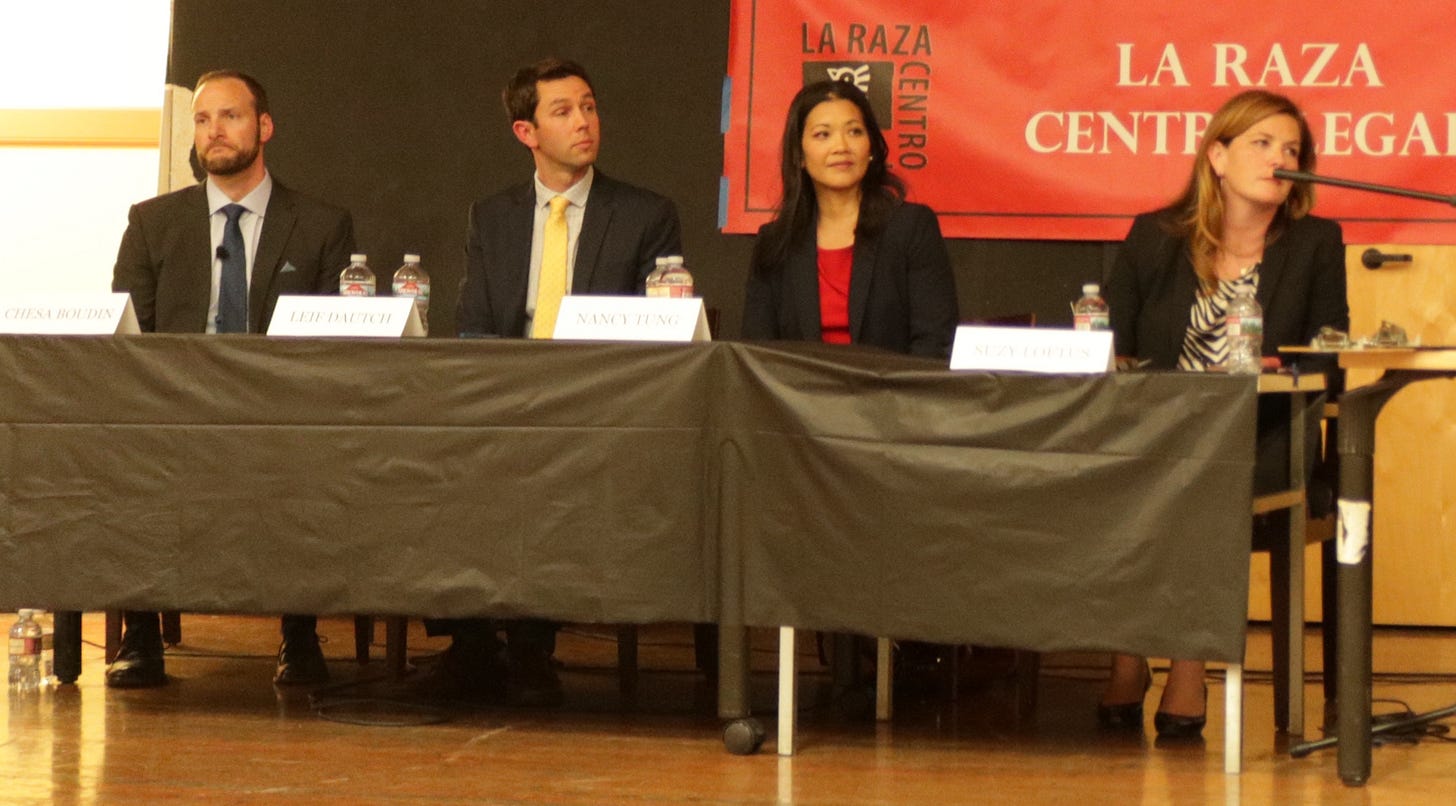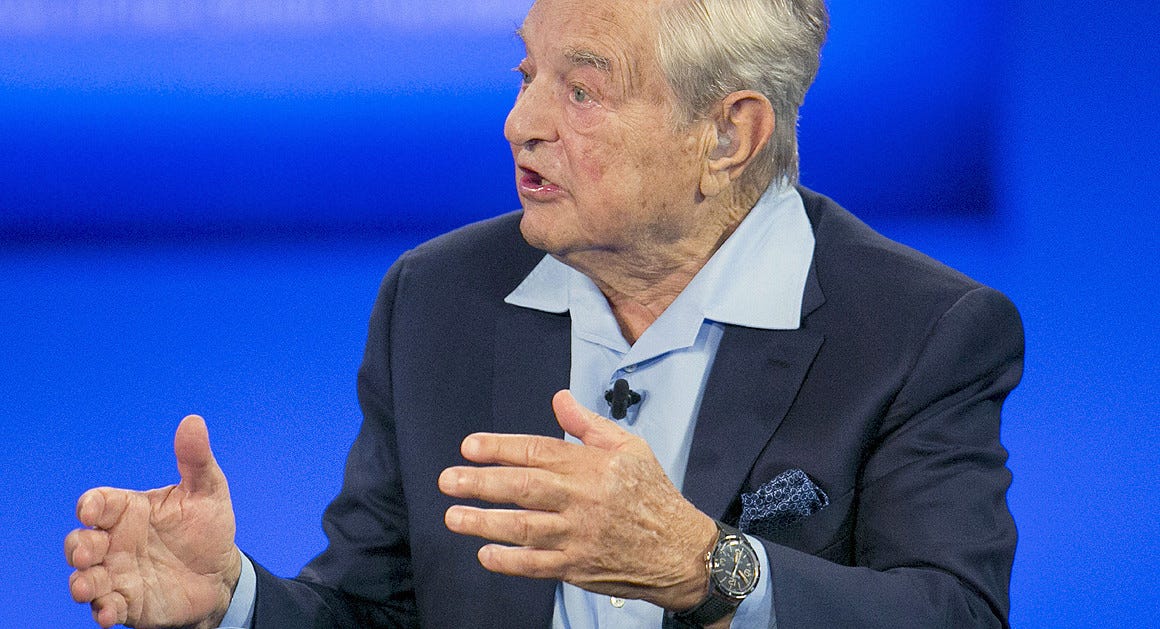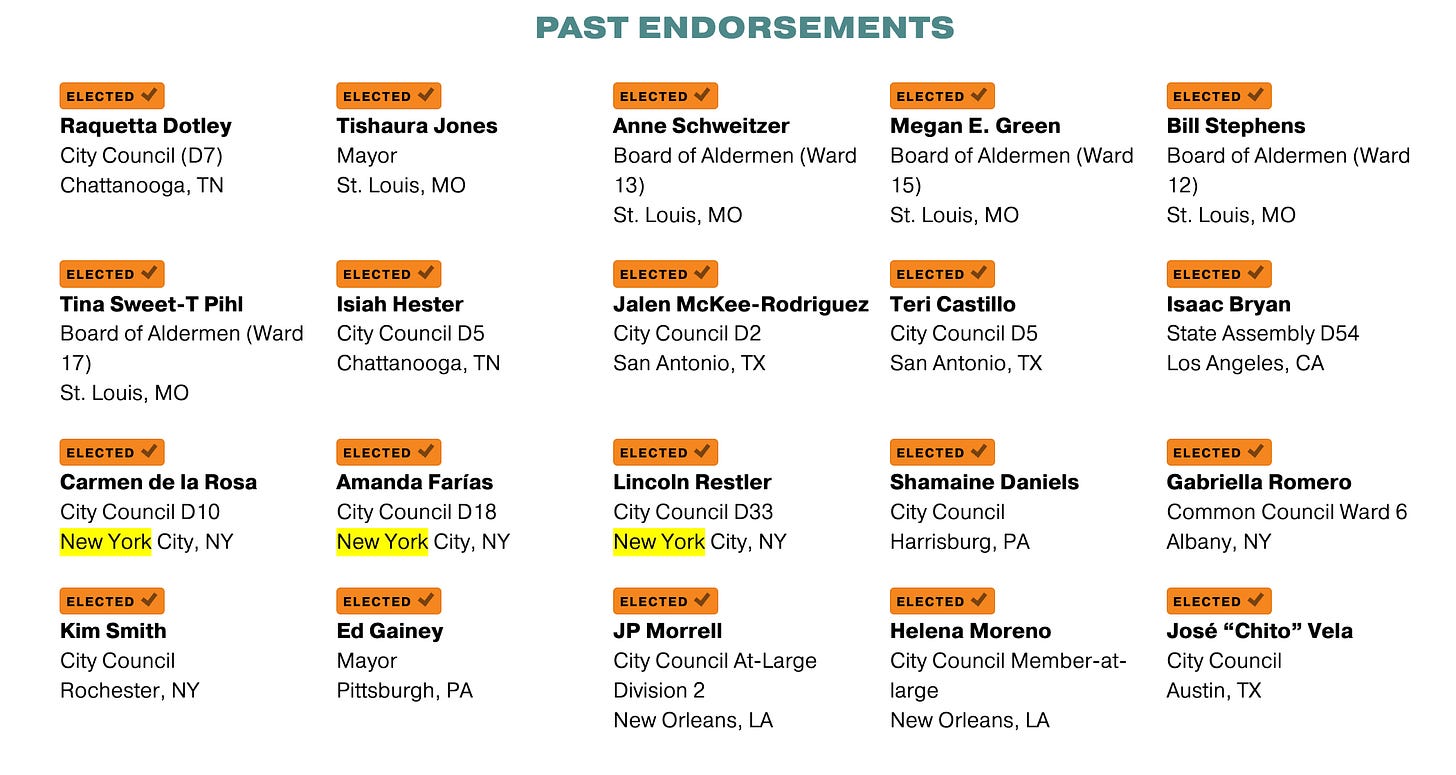Who is behind the decarceral movement?
A well financed, close-knit and secretive group of wealthy intellectuals
Chesa Boudin will likely lose on Tuesday, June 7th. He certainly deserves to. A recent poll shows that 68% of San Franciscans support recalling Boudin. Fundraising is also very strong on the recall side. Harder to measure are the qualitative features of Chesa’s failure. The city looks really bad and there is a general sense that crime is out of control. It's difficult to put into words the deterioration of civil society in San Francisco.
Chesa landed in politics in 2019. The previous San Francisco District Attorney, also a progressive DA, was George Gascón. In 2018 Gascón, in a surprise announcement, indicated he would not seek a third term, citing his 90-year-old mother's ailing health. The following year, George Gascón revealed he intended to explore a run for Los Angeles District Attorney, the true reason for his premature departure. Gascón promptly exited SF in October.
Gascón’s departure triggered an off-year special election for the San Francisco District Attorney. Off-year elections differ from traditional cycle elections in that they do not have a banner contest such as President or House Member on the ticket, so turnout will be lower. Four candidates for San Francisco District Attorney emerged: Suzy Loftus, Chesa Boudin, Leif Dautch and Nancy Tung. Suzy Loftus had the advantage as she was selected by Mayor London Breed to serve as the interim District Attorney. Suzy had all of the major endorsements including the San Francisco Democratic Party and numerous city Democratic clubs. She was a shoo-in.
But Curious things were happening underneath the surface. Chesa began to raise money - a lot of money - from out of state. Numerous checks in excess of $5,000, some as large as $100,000 began to arrive from places like Portland, New York, Chicago, and Atherton. A small sample includes: Thomas Rigo Haug of Bishop Rock Capital LP contributed $8,000. Jason Flom, (covered in Rolling Stone) a music executive of New York contributed $5,000. Dontzin Nagy & Fleissig, LLP contributed $10,000. Rachel Rigo, a medical doctor from New York, contributed $8,000. Much larger names such as George Soros, Patty Quillin (Wife of Netflix’s Reed Hastings), Elizabeth Simons (Billionaire heiress), and Cari Tuna (Dustin Moskovitz’s wife) utilized other PAC instruments to contribute indirectly, albeit significantly. These instruments included: Smart Justice California Action Fund, Real Justice PAC, and Grassroots Law PAC. Money isn’t everything in elections, Michael Bloomberg demonstrated this well. But through a combination of cash, a well-run campaign, the convenient timing of an off-year election (was this planned?), and 3 equally qualified moderate candidates, Chesa emerged the winner. The speed, magnitude of the contributions, level of organization, and high impact players leave one wondering: what is going on here?
Enter The Decarceral movement. The decarceral movement is an intellectual response to mass incarceration. Key tenants of this belief system are that (1) the system disproportionately affects people of color and (2) the system is systemically racist. In the Essay The Categorical Imperative as a Decarceral Agenda, Jessica Eaglin outlines the two schools of thought related to remediating the effects of mass incarceration (through decarceration):
“In his forthcoming book, The Insidious Momentum of Mass Incarceration, Frank Zimring proposes two alternative methods to decarcerate: states can adopt a categorical imperative to reduce prison populations or states can reform the governance of sentencing. This symposium Essay focuses on the first of these options, as proposed in his tentative Chapter Six, wherein Zimring calls for categorically removing drug-addicted offenders from eligibility for prison sanctions and expanding use of jails for categories of offenses or offenders”
Teen Vogue has weighed in to further decipher the complex meaning of this movement:
“In the past few years, activists have been joined by a new cohort of unlikely allies: prosecutors. Across the country, a small but growing movement of attorneys who want to dismantle the policy prescriptions that underlie mass incarceration have started running for — and winning — elections to become district attorney. Many want to abolish the death penalty, redirect resources toward education and mental health services, and foster trust between minority communities and the police. In cities like Boston and Philadelphia, these progressive prosecutors and candidates want to transform the system from the inside out.”
Chesa is part of the first category that Jessica Eaglin describes, in which he uses the power of the District Attorney's office to reduce the prison population, as opposed to Democratic legal reforms of sentencing. This category of decarceration is undemocratic in the sense that Laws on the books are simply disregarded, null and void, leaving no recourse for Citizens and victims whatsoever. Teen Vogue said clearly the office will be used to change the effects of Law by simply disregarding Law. Absent from the conversation is the constitutional concept of Trial by Jury. The 6th Amendment says ‘[You have] the right to an impartial jury’. Is every jury in the United States racist? Can San Francisco jurors be trusted to be impartial? What are we replacing the jury system with? Disagreements aside, let's continue.
Chesa Boudin will likely lose his office on June 7th, but the commitment, organizational infrastructure, movement strength, media support, and financing of the decarceral movement will remain strongly in place.
Media Support: Chesa has been featured in numerous glowing accolades in the American Press: The Atlantic (2x), The New Yorker (2x), Teen Vogue, Intelligencer, NYMag, Business Insider, NYTimes (1, 2, 3), Mother Jones, Fast Company, Bloomberg, The Appeal, WSJ, Mercury News, SF Chronicle, Rolling Stone. The list goes on and on. All of the articles are variations of the same theme: Crime is way down, his policies are exciting, decarceration is not only a sensible solution but a necessity, etc. It's safe to say the decarceral movement is amplified by the American Press and is an emerging policy position. Notwithstanding the evidence that crime is perceived to be increasing in San Francisco, the papers have reached a conclusion. Missing from the conversation are questions of legality, the concept of trial by jury, or any critical analysis of these colossal policy changes. But the press has made its decision on this matter.
Organizational Strength: As of 2016, Through his PAC (and other PACs) Safety and Justice, George Soros has injected over 3 Million dollars to “quietly overhaul the U.S. justice system,” according to Politico. In addition to Soros’ commitment, as previously noted, many other billionaires are financing the decarceral movement. The conduits include Real Justice PAC, Smart Justice, Grassroots Law PAC, and Civil Rights Corps. Additional financial support comes from the Tides Center, Fair and Justice Prosecution, Brennan Center for Justice, The Partnership for Safety and Justice, and Vera Institute of Justice. Non-traditional groups such as The ACLU, the Sierra Club, various labor unions, and the Sunrise Movement are also providing financial and operational support to elect Progressive DAs. And many more that are yet to be discovered.
Organizational Success: The movement has elected Progressive District attorneys all over the country. Progressive DAs represent 1 in 5 Americans and half of America’s most populated cities. live A small list of names includes Philadelphia district attorney Larry Krasner, Suffolk County district attorney Rachael Rollins, Hinds County district attorney Jody Owens, New York County District Attorney Alvin Bragg, Los Angeles District Attorney George Gascón, and many more. Grass Roots Law highlights numerous additional successes:
The decarceral movement is well-financed and organized. The movement has the support of the press and it will certainly outlast Chesa Boudin. But it does not have the popular support of the people. Crime is perceived to be a problem and it's a major issue this election year. Typically the District Attorney contest does not garner very much press or public interest. It was historically a boring election. But as you can see there is an interest by a moneyed group of individuals who wish to replace the current criminal justice system with something entirely different. This Recall is the first step, there will be more to come.
- Justin Zollars








